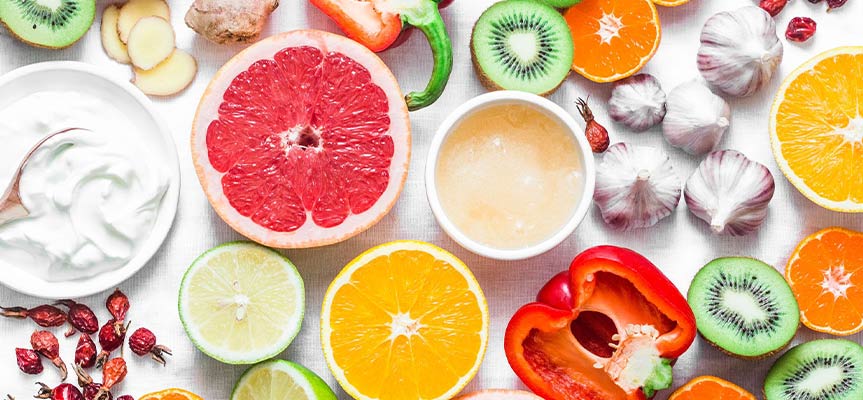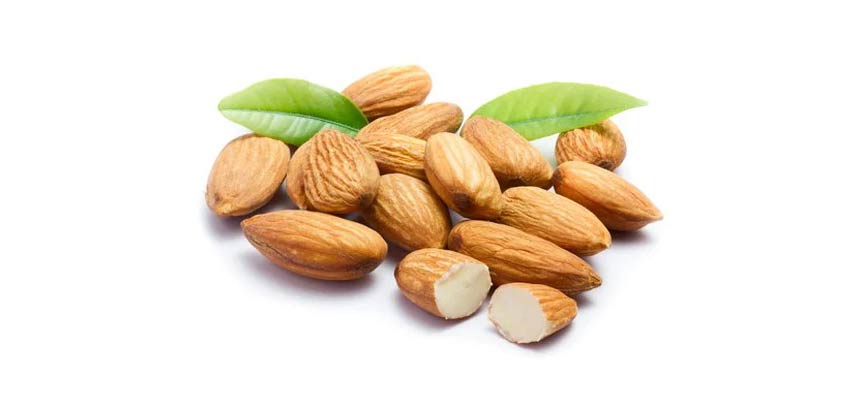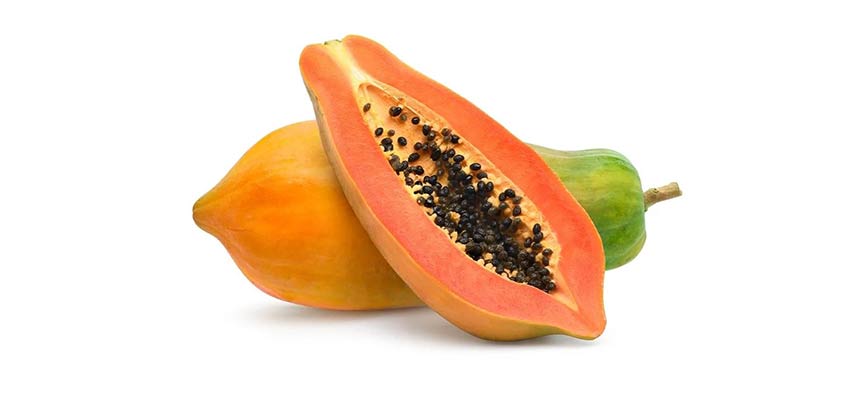Nutrition with essential and specific foods helps boost the body’s immune system. The first step in preventing colds, flu, and other infections is planning a balanced and appropriate diet that includes essential nutrients to strengthen the immune system.
Foods that help strengthen and improve the immune system include:
-
Citrus Fruits
Most people turn to vitamin C when they catch a cold. This vitamin helps to strengthen the immune system. Vitamin C is believed to stimulate the production of white blood cells, which are key in fighting infections. Citrus fruits are rich in vitamin C, and due to their variety, it’s easy to add some of this vitamin to every meal. Common citrus fruits include grapefruit, oranges, tangerines, sweet lemons, and sour lemons. Since the body does not produce or store vitamin C, daily intake is required. The recommended amount for women is 75 mg, and for men, 90 mg per day. It is advised not to take more than 2000 mg of vitamin C supplements daily.
-
Red Bell Peppers
Red bell peppers contain almost three times more vitamin C than oranges. They are also a rich source of beta-carotene. Vitamin C not only helps boost the immune system but also supports skin health. Beta-carotene, which converts to vitamin A in the body, supports eye and skin health.
-
Broccoli
Broccoli is full of vitamins and minerals. It is rich in vitamins A, C, and E, as well as fiber and many necessary antioxidants. The key to retaining its nutrients is to cook it as little as possible, or not cook it at all. Studies have shown that steaming or microwaving broccoli is the best way to preserve its nutrients.
-
Garlic
Garlic adds flavor to food and has been used for medicinal purposes for centuries. Early civilizations recognized its value in fighting infections. Garlic also reduces the hardness of blood vessels and is used to treat high blood pressure. The immune-boosting properties of garlic come from its high concentration of sulfur-containing compounds like allicin.

-
Ginger
Ginger is another food that many people turn to when they feel ill. Ginger can reduce inflammation, which may help relieve sore throats and other inflammatory conditions. It also helps with nausea. Gingerol, the active compound in ginger, has anti-inflammatory, anti-tumor, and antioxidant properties. Gingerol is a member of the same family as capsaicin, the active compound in chili peppers. Ginger may also help reduce chronic pain and has cholesterol-lowering properties.
-
Spinach
Spinach is not only rich in vitamin C but also in antioxidants and beta-carotene, both of which enhance the immune system’s ability to fight infections. Like broccoli, spinach should be cooked as little as possible to preserve its nutrients. Light cooking helps with the absorption of vitamin A and also removes other nutrients from oxalic acid, an anti-nutrient.
-
Yogurt
Choose yogurts that contain live and active cultures (probiotics). These microorganisms stimulate the immune system to help fight illnesses. Yogurt can also be an excellent source of vitamin D, which helps regulate the immune system and is believed to boost the body’s natural defense against diseases.
-
Almonds
When it comes to preventing and fighting colds, vitamin E follows vitamin C. This strong antioxidant is essential for maintaining a healthy immune system. Vitamin E is fat-soluble, meaning it requires fat for proper absorption. Nuts, such as almonds, are rich in this vitamin and also contain healthy fats. Adults need only 15 mg of vitamin E per day. Half a cup of almonds, approximately 46 nuts, provides about 100% of the daily recommended amount.

-
Sunflower Seeds
Sunflower seeds are rich in nutrients, including phosphorus, magnesium, and vitamins B6 and E. Vitamin E plays a crucial role in regulating and maintaining immune system function. Avocados and dark leafy greens also contain high amounts of vitamin E. Sunflower seeds are also rich in selenium. Just one ounce (about 28 grams) contains almost half the selenium an average adult needs per day.
-
Turmeric
Turmeric is a key ingredient in curry powder. This bright yellow spice has traditionally been used as an anti-inflammatory for treating arthritis and rheumatoid arthritis. Studies show that the high concentration of curcumin, which gives turmeric its distinct yellow color, can help reduce exercise-induced muscle damage. Curcumin is also known for its immune-boosting properties and anti-microbial effects.
-
Green Tea
Both green and black teas are rich in a type of antioxidant called flavonoids. The advantage of green tea is its high concentration of another powerful antioxidant called epigallocatechin gallate (EGCG). Studies have shown that EGCG has antiviral properties that help improve the immune system. The fermentation process in black tea destroys much of the EGCG, while in green tea, it remains intact since it is not fermented.
-
Papaya
A small papaya provides 100% of the recommended daily amount of vitamin C. Papaya also contains a digestive enzyme called papain, which has anti-inflammatory effects. Papaya is also a good source of potassium, magnesium, and folate, which play important roles in overall health.

-
Kiwi
Like papaya, kiwi is a rich source of essential nutrients, including folate, potassium, vitamin K, and vitamin C. Vitamin C strengthens white blood cells to fight infections. Other nutrients in kiwi help the body function properly.
-
Poultry
Poultry, such as chicken and turkey, is rich in vitamin B6. About 3 ounces of turkey or chicken meat contains almost one-third of the recommended daily amount of B6. Vitamin B6 plays an important role in many chemical reactions in the body. It is also crucial for the production of new, healthy red blood cells. Bone broth made from boiling chicken bones contains gelatin, chondroitin, and other nutrients that support gut and immune system health.
-
Shellfish
Certain types of shellfish, such as oysters and crab, contain zinc, a nutrient that improves immune system function. The recommended daily amount of zinc is 11 mg for adult men and 8 mg for adult women. Excessive zinc can inhibit immune system function.

